9 Reasons Why Your Dog Peed In Sleep (And Solutions)
Imagine this: You wake up to slobbery kisses and soft, fluffy cuddles from your furry best friend. But, when you roll over to pet them, you notice a large yellow stain in the middle of the bed. It has happened again – your dog has wet the bed.
It can be frustrating to throw your bedding into the washing machine for the third time this week. Yet, it’s even more concerning that your dog can’t seem to control its bladder. As a pet parent, your pup’s health comes first, and getting to the bottom of these nighttime ‘oopsies’ is obviously your top priority.

With this list of the most common reasons your dog may be wetting the bed (and what to do about each of them), we’re hoping to give you all the information you need to get your pup some much-needed help.
9 Reasons Your Dog Pees In Its Sleep
If you start to notice that your pooch is wetting the bed, it may be for a number of reasons. Some causes are easy to fix with antibiotics or other medications, while others may be more serious. Still, let’s run through some of the usual causes of these nighttime accidents and what to do about them.
It’s important to note that although we have listed some of the most common reasons for dogs peeing during their sleep, it’s always recommended to take your pup to the vet for diagnosis. Urinary incontinence may not always be serious, but it’s best to confirm the cause with a licensed professional.
1. Urinary Tract Infections
A urinary tract infection (UTI) can commonly cause your dog’s lack of bladder control at night. This painful condition is caused by bacteria that enter the kidneys or bladder, leading to inflammation.
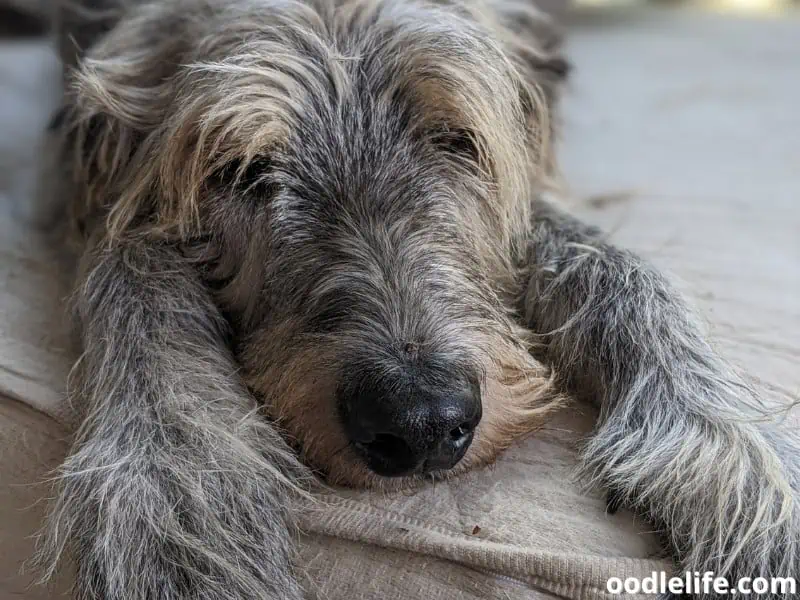
In addition to finding urine in your dog’s bed, some of the tell-tale signs of a urinary tract infection include:
- Your pooch is straining to pee
- Blood in your dog’s urine
- The urine has a strong odor
- Your dog is constantly licking its genitals
After taking your pup to the vet, they will likely need to analyze some of the dog’s urine to confirm that it is just a UTI and nothing else. They may also need to perform a sensitivity and culture test to get to the bottom of what bacteria is causing your dog’s discomfort.
But don’t worry! Your local veterinarian will prescribe antibiotics and medications that should help to eliminate the bacteria and pain.
2. Bladder Stones
If you cringed a little just by reading the words ‘bladder stones,’ then you’ll know just how painful this condition is for your furbaby! While bladder stones can usually be prevented with a good diet and medications, it’s not entirely avoidable.
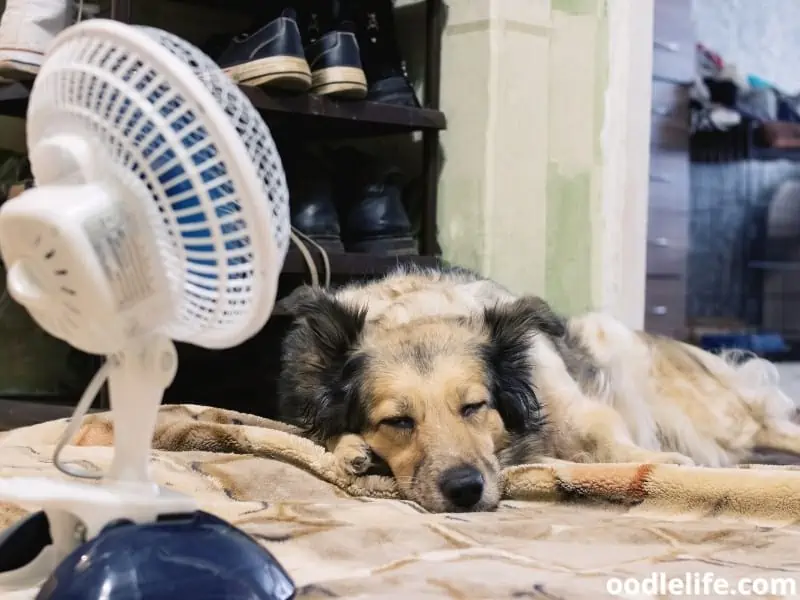
When dogs have urinary stones, they will usually have bloody urine and may even struggle to eliminate it.
If your vet suspects bladder stones, they may order an ultrasound or an X-ray to be performed on the bladder. Unfortunately, the only treatments for these stones are flushing them out (if they are small enough) and surgical removal.
3. Diabetes Mellitus
While it’s less common than other conditions, pups can develop diabetes – just like humans! If your pooch has uncontrolled or undiagnosed diabetes, it may lead to various other problems. One of these problems is, of course, your dog peeing in the bed.
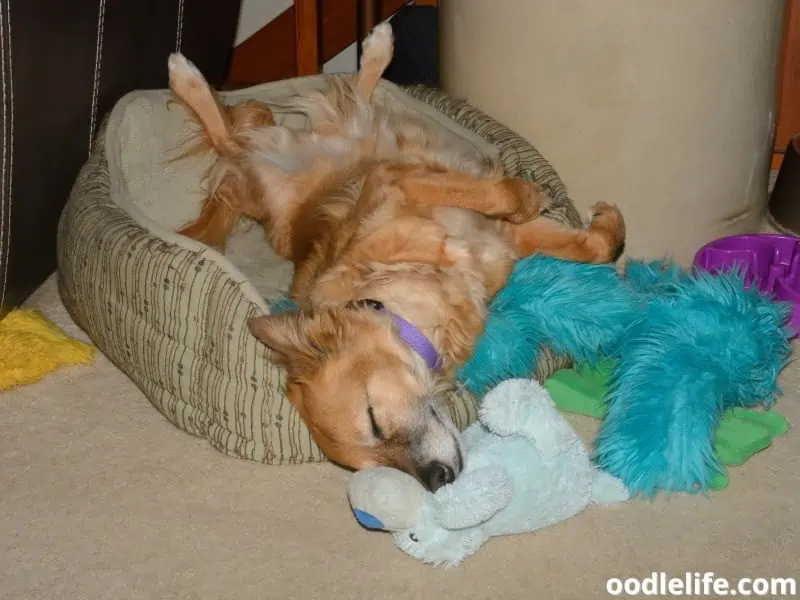
Dogs with diabetes may exhibit signs of excessive thirst. In turn, this leads to them drinking more water, which leads to more frequent or excessive urination. When your dog’s bladder is constantly full, it may begin to show signs of urinary incontinence.
The best way to diagnose diabetes in your pooch is to take it to your local vet. They will perform a blood glucose or blood sugar test and urine tests to confirm the condition. In this case, your dog may need to have daily insulin injections and a modified diet to regain control of their sugar levels.
4. Spinal Cord Disease
There are various spinal cord diseases that can lead to dog incontinence. When this occurs, your dog may struggle to move around and can exhibit signs of pain in their back or legs.
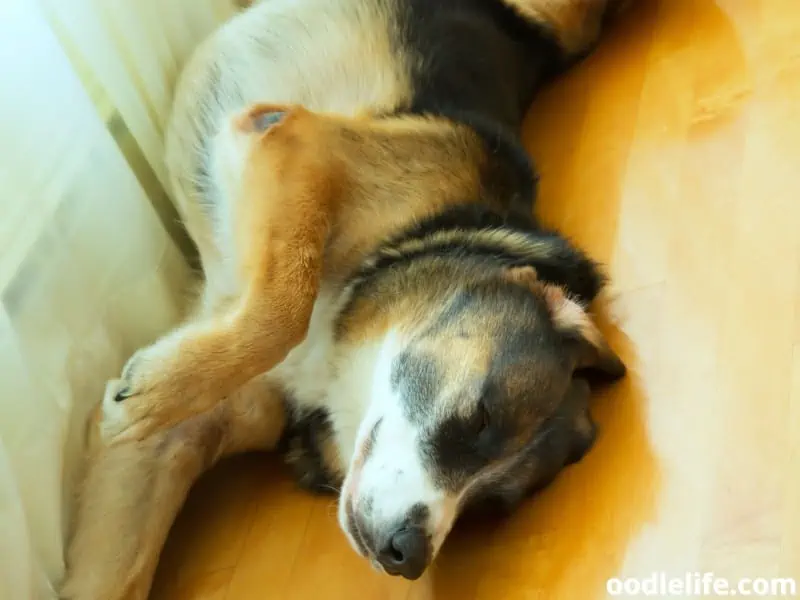
Spinal cord disease is a more serious cause of your dog peeing in its sleep, and you will need to take your pooch to the vet as soon as possible to receive a diagnosis. The treatment plans for these diseases may also vary depending on the severity of the condition. They may require surgeries or other medications to manage them effectively.
5. Kidney Disease
Much like diabetes, the most obvious sign of kidney disease is excessive thirst. However, your pup may also experience vomiting spells, increased salivation due to nausea, and diarrhea.
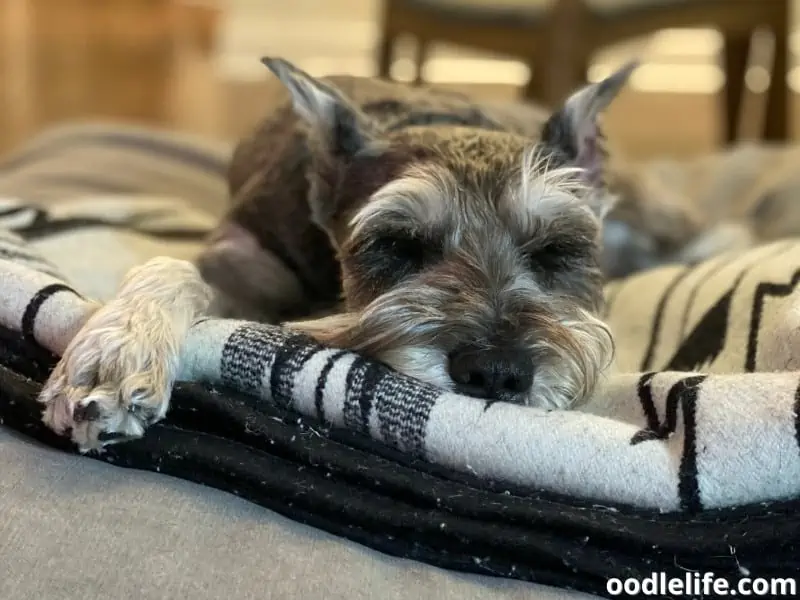
The loss of kidney function can lead to urine leakage and sometimes full-on bed-wetting if it is left untreated. Symptoms of kidney disease are more prevalent when the disease has progressed, which puts your pup in danger of kidney failure and other complications.
So, if your dog is having more frequent accidents in the middle of the night, it’s time to call the vet.
In most cases, kidney disease is directly linked to your dog’s age. Older dogs are more likely to develop these diseases. Your vet can recommend the best course of action to manage kidney disease based on how severe it is.
Typically, treatment includes medication, a change to your dog’s diet, and fluid therapies.
6. Neuter or Spay Incontinence
Urinary incontinence is a much bigger problem in female dogs. Still, it’s not uncommon for male dogs to experience urinary problems after they have been neutered. Spaying or neutering your pet can lead to a decrease in hormones like testosterone in a male dog and estrogen in a female dog.
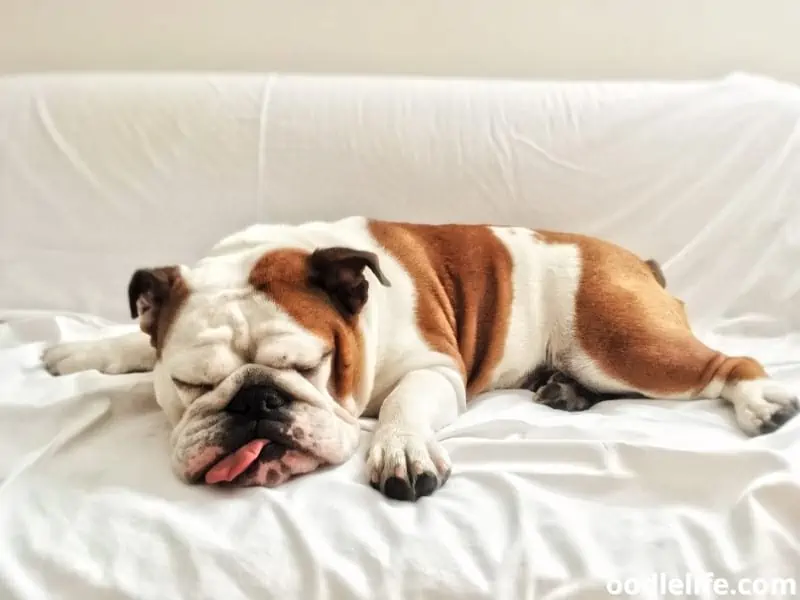
These hormones are partly responsible for bladder control. So, when your pet has lowered hormone levels, it may result in less muscle tone in the bladder – and a soggy bed from time to time. In these cases, your vet may prescribe hormone replacements to help rebalance your pup’s hormones.
However, there is no guarantee that this will work for every pooch.
If your pup is dealing with neuter or spay incontinence, we would highly recommend investing in a waterproof dog bed to make the morning clean-up a little easier.
7. Brain Diseases
Brain or neurological diseases can lead to your dog peeing in its sleep. Although this is a less common cause than a UTI or a weak bladder, it’s important to get it checked out if you find your dog suffering from incontinence.
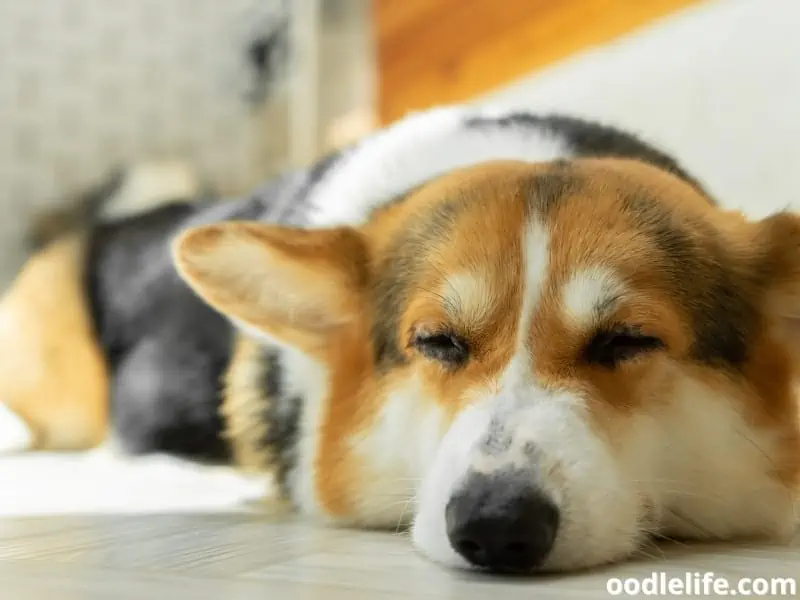
When your furbaby enters its golden years, it’s at a higher risk of developing CCD or canine cognitive dysfunction. This condition can lead to both urinary and fecal incontinence. Of course, this will require medical intervention by a vet.
Your vet may order a series of tests to pinpoint what is causing your dog to pee in its sleep. If they suspect a brain disease, they may order diagnostic testing like MRIs or CT scans. Depending on the neurological cause of the incontinence, the treatment may vary.
8. Urine Retention
Have you ever really needed to pee, but you couldn’t find a bathroom? Or maybe you just didn’t feel comfortable going to the bathroom in a specific situation or environment. Well, your furry angel may feel the same way.
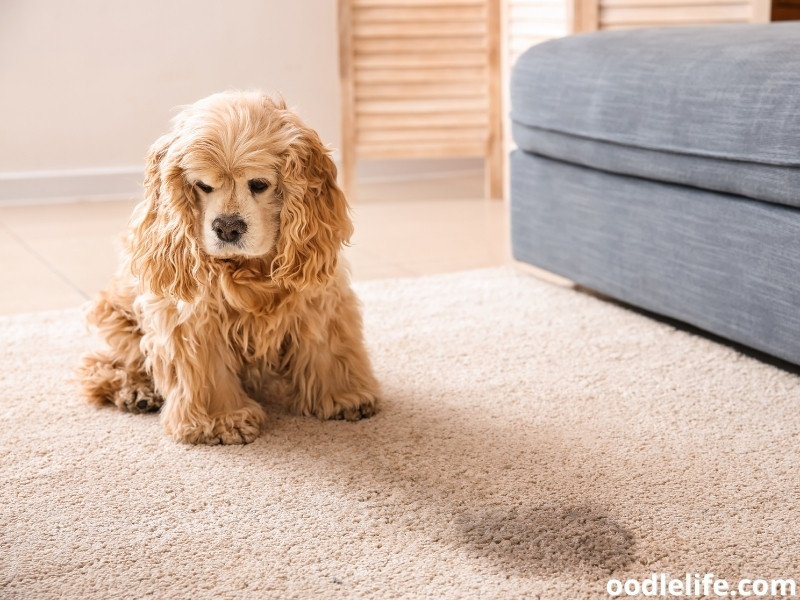
If your dog is experiencing high levels of stress, or if they haven’t been let outside to answer nature’s call, then they may end up simply holding it in! Although this is normal in most dogs, holding urine for long periods of time or on a regular basis can lead to other health problems and conditions.
One of these issues is bladder storage dysfunction, where your dog may develop urine leakage as a result. While your vet may be able to treat any resultant issues, they can’t treat a full bladder! So, be sure to let your pooch out in a safe and stress-free environment as frequently as you can.
9. Behavioral Problems
As a dog owner, you probably expect a few accidents around the house. Especially if you have younger dogs! But when your pup is potty trained and they’re still leaving puddly presents around the house for you to find, it may be an indication of a behavioral problem.
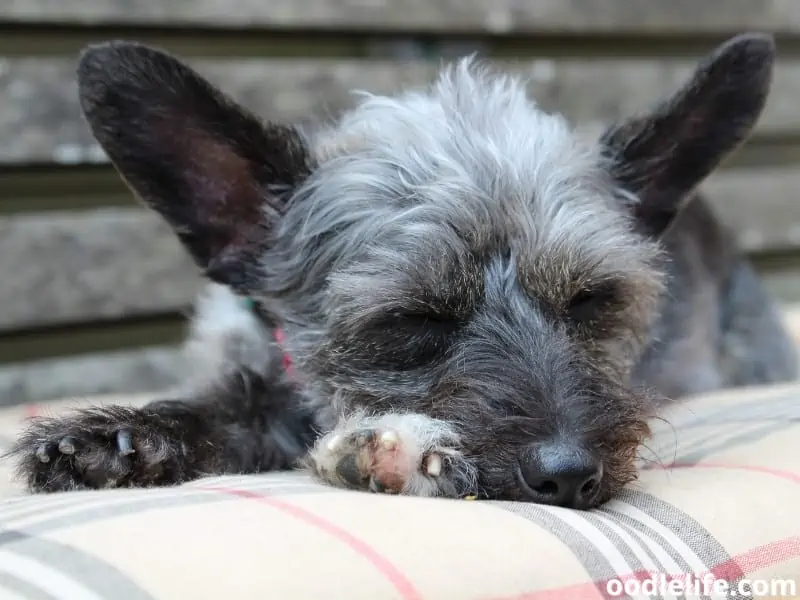
Luckily, these issues can usually be eliminated with good training or with the help of an animal behaviorist.
FAQs
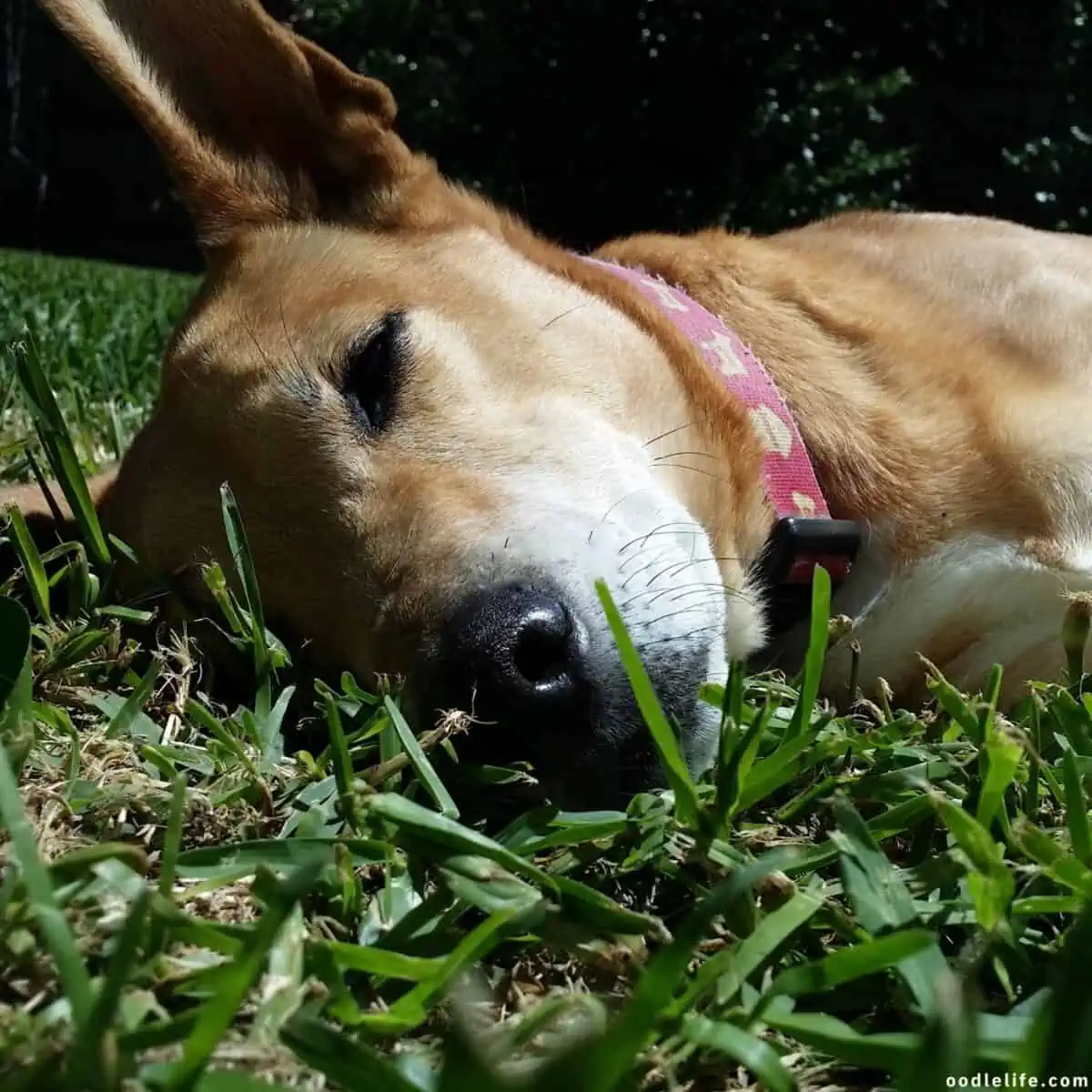
What to do if my dog is peeing in his sleep?
If your dog is peeing in his sleep, you’ll need to take him to the vet right away. If treatment isn’t an option right away, you can also invest in a waterproof dog bed or dog diapers to help control the mess for the time being.
How common is urinary incontinence in dogs?
Urinary incontinence is fairly common in older dogs. It may also be common if your pup has a degenerative disease. Still, over 20% of spayed female dogs can experience this condition, with more large dogs suffering from it than smaller breeds.